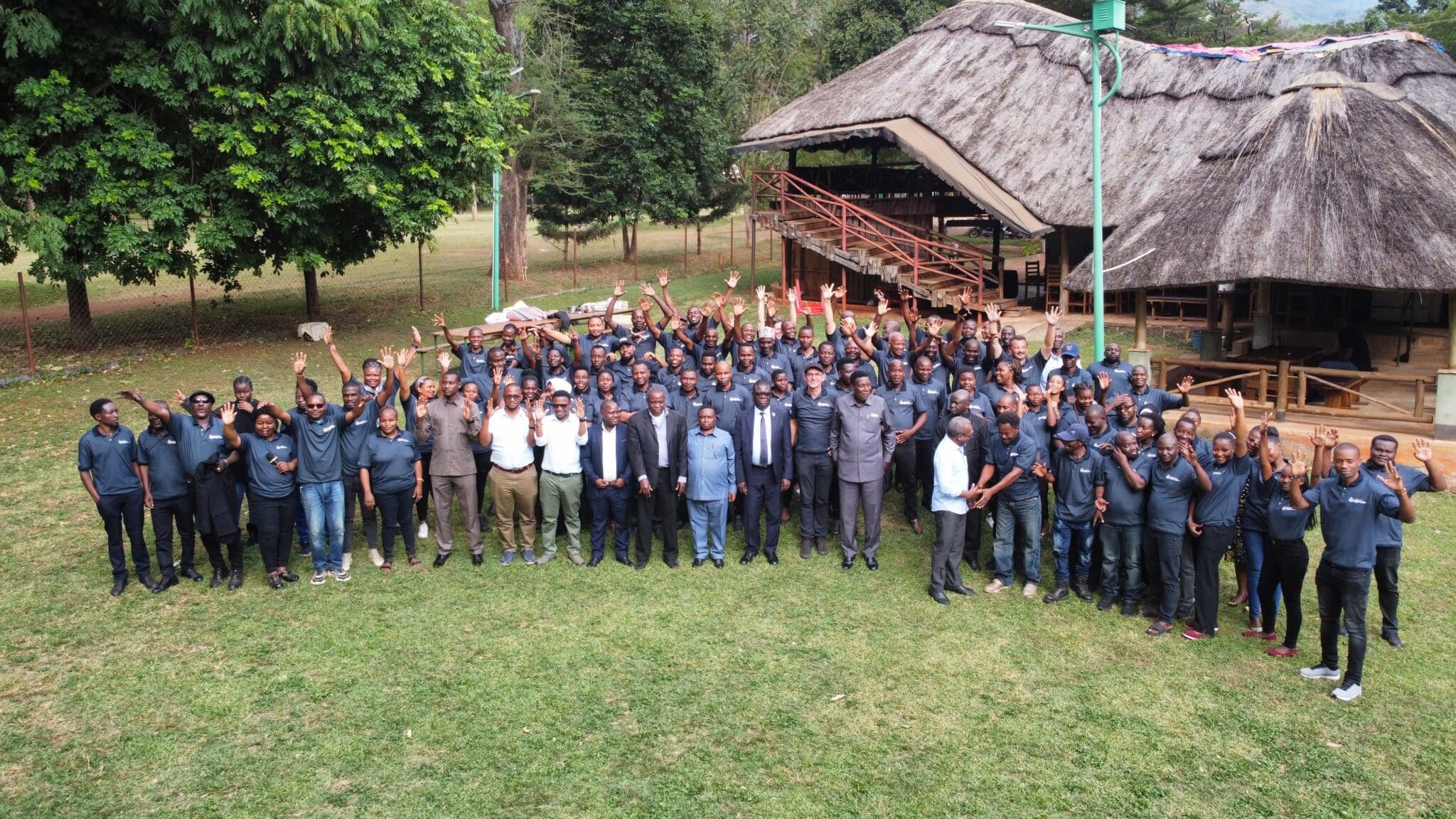The APOPO team, guests, and partners celebrate 25 years of life-saving work
On July 6 APOPO held a celebration to mark 25 years of impactful service across the globe. The commemoration, held at the Gymkhana grounds in Morogoro, Tanzania, brought together guests, partners, staff, and well-wishers to honor APOPO’s extraordinary journey of saving lives and creating a safer world.
The APOPO project had its beginnings in November 1997, when founders Bart Weetjens and Christophe Cox joined forces. Three years later they embarked on building a kennel facility dedicated to the breeding and training of African Giant Pouched Rats (aka HeroRATS) in Tanzania. The rats would play a crucial role in detecting TNT, the explosive substance found in landmines. To ensure a steady supply of these highly skilled rats for their life-saving mission, they reached out to Sokoine University of Agriculture in Morogoro, Tanzania.
Christophe Cox, CEO of APOPO, highlighted the organization’s growth since its early days. “We started with a small team searching for landmines in Tanzania, Mozambique, and later Angola and Cambodia. Over the years, we’ve expanded to employ over 400 individuals in tuberculosis and landmine detection programs across various countries, including Ethiopia, Zimbabwe, South Sudan, Senegal, Turkey, and Azerbaijan.”
APOPO CEO Christophe Cox speaks at the 25th-anniversary event in Morogoro, Tanzania
In Tanzania since 2000
As part of a collaborative effort with the Sokoine University of Agriculture (SUA) and the Tanzanian People’s Defence Forces, in 2000 APOPO established office and training facilities in Morogoro, laying the foundation for what would become the most extensive training Minefield in Africa. The organization’s headquarters were located at the SUA campus, nestled at the foot of the stunning Uluguru Mountains, creating a strategic base for APOPO’s operations.
At the celebration event Prof. Raphael Chibunda, Vice Chancellor of Sokoine University of Agriculture (SUA), where APOPO now has its operational headquarters, expressed appreciation for APOPO’s efforts. “SUA is proud to collaborate with APOPO on research initiatives addressing societal problems, such as landmines and tuberculosis. We thank everyone at APOPO for their dedication to making our communities safer and healthier.”
Prof. Raphael Chibunda, Vice Chancellor of Sokoine University of Agriculture (SUA), speaks at the 25th-anniversary event in Morogoro, Tanzania
Huge impact in demining and TB detection across the world
Christophe Cox also shared the impact APOPO has made across the world, noting, “Over the last 25 years, we’ve cleared more than 87,000,000 square meters of land and destroyed over 155,000 explosive devices, protecting over 2,200,000 lives from potential explosions.
Additionally, in tuberculosis detection, we’ve identified more than 27,000 additional TB cases, preventing over 270,000 potential infections.”
In 2003, in a groundbreaking collaboration with Menchen gegen Minen (MgM – People Against Landmines), APOPO held its first field trial in Mozambique. The highly trained rats were put to the test on a dense minefield. The rats accurately indicated the presence of all 20 landmines subsequently discovered by the manual deminers. The successful results of this pioneering effort were published in the Journal for Mine Action, Issue 9.2, in February 2006, marking a significant milestone in APOPO’s life-saving mission.
During the 25th-anniversary celebration, Retired Major General Charles Muzanila highlighted the critical collaboration between the Tanzanian National Defense Force (NDF), Mzinga unit, and APOPO. The NDF played a pivotal role in acquiring 1,500 mines for training HeroRATs to detect and clear landmines from affected areas.
Retired Major General Charles Muzanila shares his experience with APOPO at the event
APOPO also runs TB detection programs in Mozambique, Tanzania, and Ethiopia. For example, the TB detection research program in Tanzania was launched in mid-2007, establishing a partnership with four government clinics. Since then, the program has witnessed significant growth and expanded its collaboration to include 80 clinics across various locations, including Dar es Salaam city, Dodoma city, Coast, and Morogoro regions. In 2016, APOPO took a further step by inaugurating a modern testing facility in Dar es Salaam, enhancing its ability to detect TB effectively and extending its reach to help more individuals in need.
APOPO’s work is supported by numerous partners
At the event, APOPO also acknowledged the enormous support of its Tanzanian partners over the years, including the Tanzania Wildlife Authority (TAWA), the National Institute for Medical Research (NIMR), the Ministry of Health, Community Development, Gender, Elderly, and Children (MoHCDEC), MKUTA (a Tanzanian organization made up of TB survivors) and the National Tuberculosis and Leprosy Program (NTLP), for their essential role in supporting APOPO to make Tanzania safer.
While the 25th-anniversary event celebrated past achievements it also looked forward to the work APOPO is planning for the future. Together, APOPO and its partners will continue to strive to create a safer and better world for generations to come.

